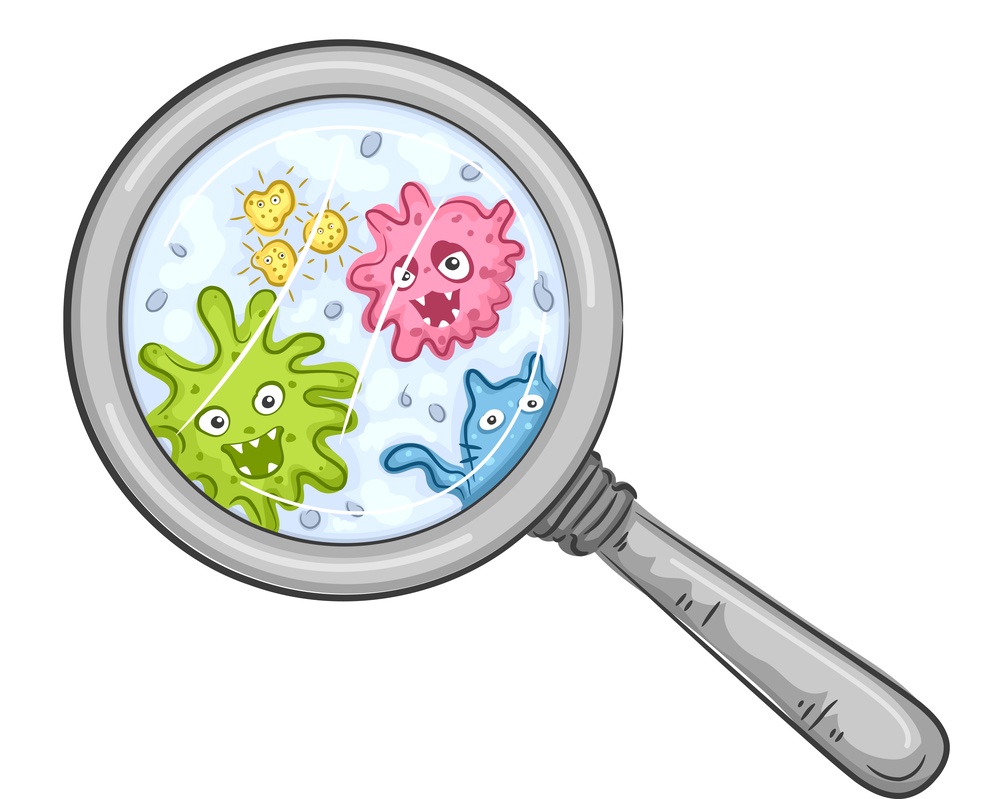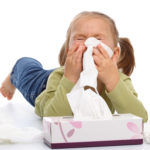Science is so cool…and a little bit creepy too. Case in point, the link between your children’s gut health and their behavior just got stronger. Let us explain.
Gut bacteria is having a kind of renaissance moment in research. What was once dismissed as a curiosity, is now the next frontier of medicine.
Those little bugs in your belly are responsible for a LOT more than doctors originally thought!
And yes, people have known for a while that having a healthy gut matters. I’m sure we’ve all experienced stomach or intestinal issues in our life, and we intuitively know that eating well helps keep everything in working order.
But now science is starting to recognize just how impactful your gut bacteria really are. And it’s fascinating stuff!
Want BETTER gut health for your kids? CHECK OUT this highly rated Children’s Probiotic!
A slew of recent studies reveal that a healthy gut, AKA your microbiome, has wide-ranging impacts on your health – from obesity to longevity, to allergies, heart health, and yes… even mood and behavior.
What’s interesting, and something parents may not know, is that these gut impacts don’t just apply to adults… they apply to kids too.
So come along with us as we take a deeper dive into your child’s microbiome and see how it can impact their overall health and behavior.
Children’s Gut Health
Let’s take a step back and start at the beginning.
So that we’re all on the same page, I want to quickly define the gut microbiome and the role it plays in your child’s body and brain.
We’ll also explore how your children’s gut health affects behavior, sleep, energy, focus, etc. and what you can do to help get your child’s microbiome back on track if it’s out of balance.
What Is A Microbiome?
Everyone has millions of microorganisms; bacteria, yeast, and viruses – in and on their bodies which make up their microbiome.
Did you know that we are actually more microbial (about 90%) than we are human? How crazy is that!?
Our microbiome is all of the bacteria (both good and bad) throughout our entire body.
TO TRY: Culturelle Kids Chewable Daily Probiotic for Kids
The good bacteria work together to support your child’s health by protecting the body, strengthening the immune system, assisting with digestion of nutrients, and helping their gut mature.
When it comes to children’s gut health – balance is very important, as we need the right types of bacteria present in the right amounts for the brain and body to function optimally.
Ideally, about 85% of the microbes are probiotics working on your child’s behalf to support comfortable, efficient digestion and nutrient absorption, a strong immune system, balanced blood sugar levels, positive emotions, and even a healthy metabolism.
“In early life, the microbes babies inherit, along with those that populate their microbiome, appear to play a key role in shaping physiological and immune development, hence this period of life seems to be key in determining risk for disease later in life,” – Susan Lynch, Ph.D., a professor of medicine at the University of California San Francisco.
But while adults’ microbiomes are made up of more than 1,000 different species of bacteria and other microbiota and over 100 trillion microorganisms, an infant’s microbiome contains less than 100 species, according to the University of Utah Genetic Science Learning Center.
The way those species diversify and combine as your child develops plays an important role in their physical and cognitive future.

The Link Between Gut Health And Behavior
What science is just now discovering is that in addition to impacting your child’s overall health, their microbiome can also impact their personality and behavior.
Researchers at Ohio State University recently found that gut bacteria affect a toddler’s temperament.
After examining the stool samples of kids aged 18-27 months (not the funnest job on the planet), the researchers concluded that mood, curiosity, sociability, impulsivity, and – in boys – extroversion were linked to more genetically diverse bacterial species.
The New York Times recently dug into a body of research that increasingly suggests the little bugs swimming around your insides not only digest food and fight disease, they also secrete mood-regulating chemicals like serotonin, dopamine, and gamma-aminobutyric acid or GABA.
“There is definitely communication between bacteria in the gut and the brain, but we don’t know which one starts the conversation, maybe kids who are more outgoing have fewer stress hormones impacting their gut than shy kids. Or maybe the bacteria are helping mitigate the production of stress hormones when the child encounters something new. It could be a combination of both.” – Dr. Michael Bailey, co-author of the Ohio State University study.
Does this mean there might be dietary way to help treat things like anxiety or ADHD? Or could probiotics help manage problematic behavior like temper tantrums? It’s definitely possible.
Scientists at the Children’s Hospital of Pennsylvania conclude that gut bacteria also helps create about 95% of a child’s serotonin, which influences mood, depression, and behavior.
So it makes sense that by addressing children’s gut health, you are also addressing their mental and physical health.
Personality Bugs?
Still not totally convinced the gut can actually influence behavior?
In lab studies at McMaster University in Canada, scientists discovered that by injecting one mouse with bacteria from the microbiome of another, the injected mouse began to take on similar personality characteristics. Whoa!
That’s right, when the little bugs from the first mouse were shared with a second, mouse 2 started acting like mouse 1!
Aside from the creepy sci-fi implications about who’s really controlling your brain….you or the bugs that live inside you, this is actually pretty cool stuff.
It opens a whole new range of possible treatments for things like depression, personality disorders, anxiety and more. We can’t wait to see where the research goes next!
RELATED: Vomiting In Children: Common Causes And Effective Home Treatments
Intelligence And Bacteria
Now if you really want to go outer-limits, In a first-of-its-kind study, researchers at the University of North Carolina found that infants with an optimal mix of gut micro-bacteria at age one went on to have better cognitive skills by age two.
In the study, published in the journal Biological Psychiatry, scientists reported:
“This is the first study to show that variation in the human gut microbiome is associated with cognition in typically developing infants. We have shown that microbial composition of the human gut at 1 year of age predicts cognitive performance at 2 years of age, particularly in the area of communicative behavior.”
The findings could reveal important clues for kids with developmental disorders characterized by cognitive or language delays.
The Gut-Brain Connection
The gut is often referred to as “the second brain” because of the many important ways they are connected and communicate with one another.
You’re probably familiar with the expression “a gut feeling”… this is a real thing!
Our gut and brain are in constant communication through something called the enteric nervous system. This special system of neurons controls aspects of the gastrointestinal system, the immune system, the endocrine system, and more. It also sends many signals to the brain (way more than the brain sends to the gut), which impacts how our brain functions.
The gut microbiome plays a major role in the enteric nervous system because the balance of bacteria influences the communication that gets sent from the gut to the brain.
When there are not enough good bacteria this communication can become dysfunctional and cause symptoms such as depressed mood, irritability, anxiety, hyperactivity, brain fog, poor attention, poor sleep, and chronic headaches.
The gut also impacts mental health through the production of neurotransmitters. These are the chemical messengers that allow nerves to communicate with one another.
The key takeaway here? The brain relies on a healthy well-balanced gut in order to function properly.
Problems in the gut don’t just cause belly symptoms, they can also cause psychological symptoms for children and adults.
Developing Your Child’s Gut Health
One way to help manage mood and temperament then, is to focus on developing our children’s gut health.
Diet plays a huge role in a child’s microbiome.
RELATED: 6 Easy Ways To Boost Your Kid’s Gut Health
Another option to consider is giving kids specially formulated probiotics, like Renew Life Kids Probiotic or Culturelle Kids Chewable Probiotics.
Probiotics are beneficial bacteria that live in our gut (mostly in the digestive tract). They perform a wide variety of functions.
Probiotics help with regulating the immune system, digesting food, producing neurotransmitters, and supporting energy production. They have a major impact on almost every aspect of brain and body function.
By giving children the right probiotics, you can help build the proper balance of ‘good’ to ‘bad’ bugs they need for optimal health.
RELATED: Reducing The Amount Of Sugar In Your Family’s Diet
SHARE how children’s gut health affects behavior on Pinterest and Facebook












